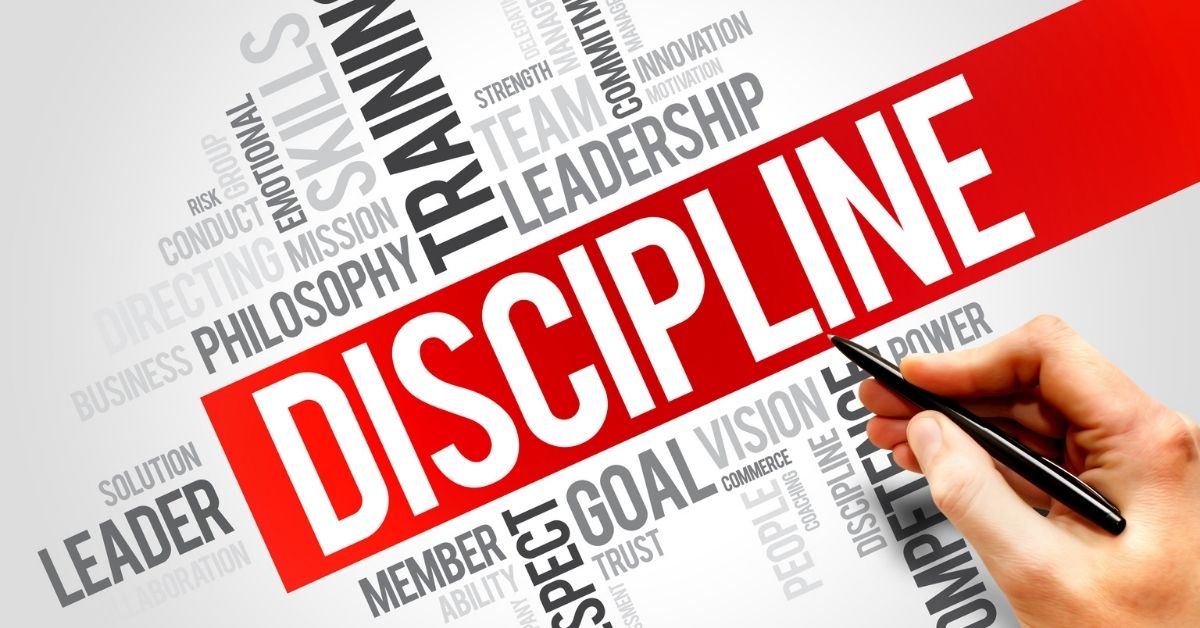The Surprising Benefits of Discipline: Why Self-Control is the Key to Success
Have you ever found yourself procrastinating, unable to stick to your goals, or struggling with bad habits? You're not alone. Many people struggle with self-control, and it's easy to see why. We live in a world that's full of distractions, temptations, and instant gratification. But what if there was a way to break free from these patterns and achieve your full potential? The answer lies in discipline.
Discipline is often associated with punishment, but that's only one aspect of it. At its core, discipline is about self-control. It's the ability to delay gratification, make conscious choices, and stick to a plan even when it's challenging. When you have discipline, you're in control of your actions and decisions, rather than being controlled by your impulses and emotions.
The benefits of discipline are many, and they apply to all areas of life. Whether you're trying to achieve a personal goal, improve your relationships, or advance your career, discipline can help you get there. Here are some of the surprising benefits of discipline that you might not have considered before:
Discipline builds confidence
When you have discipline, you know that you can trust yourself to follow through on your commitments. This builds confidence and self-esteem, which can spill over into other areas of your life. When you feel confident in yourself, you're more likely to take risks, try new things, and pursue your dreams.
Discipline reduces stress
When you're constantly putting things off or struggling to make decisions, it can lead to a lot of stress and anxiety. But when you have discipline, you're able to make choices more easily and prioritize your time effectively. This can reduce stress and help you feel more in control of your life.
Discipline improves relationships
When you're disciplined, you're more reliable and trustworthy. This can improve your relationships with others, whether it's your partner, family members, or coworkers. People are more likely to respect and admire someone who has discipline, and it can help you build stronger, more meaningful connections.
Discipline leads to success
Perhaps the most obvious benefit of discipline is that it can lead to success. When you have self-control and can stick to a plan, you're more likely to achieve your goals. Whether it's losing weight, building a business, or learning a new skill, discipline is the key to making progress and seeing results.
So, how can you develop discipline? It's not something that comes naturally to everyone, but it's a skill that can be learned and strengthened over time. Here are some tips to help you build your discipline muscle:
Set clear goals
Having a clear goal in mind can help you stay focused and motivated. Write down what you want to achieve, and be specific about the steps you need to take to get there.
Create a plan
Once you have a goal in mind, create a plan of action. Break down your goal into smaller, more manageable steps, and create a timeline for when you want to accomplish each one.
Stay accountable
Find someone who can hold you accountable to your goals, whether it's a friend, family member, or coach. Share your plan with them and ask for their support and encouragement.
Practice self-care
Discipline requires energy and willpower, so it's important to take care of yourself. Get enough sleep, exercise regularly, and eat a healthy diet to ensure that you have the energy you need to stay on track.
Celebrate your successes
Finally, celebrate your successes along the way. When you reach a milestone or accomplish a goal, take the time to acknowledge your hard work and feel proud of what you've achieved.
It's important to remember that developing discipline is not a one-time event, but rather a lifelong process. It takes time and effort to build new habits and change old patterns, so be patient with yourself and don't give up if you experience setbacks along the way.
One of the keys to developing discipline is to focus on the long-term benefits rather than the short-term costs. It can be challenging to say no to immediate pleasures or distractions, but when you keep your long-term goals in mind, it becomes easier to prioritize and stay on track.
Another important aspect of discipline is self-forgiveness. We all make mistakes, and no one is perfect. If you slip up and fall off track, don't beat yourself up or give up altogether. Instead, acknowledge your mistake, learn from it, and get back on track as soon as possible.
Ultimately, discipline is about taking control of your life and creating the future you want for yourself. It's not always easy, but the benefits are well worth the effort. By developing discipline, you can build confidence, reduce stress, improve relationships, and achieve your goals.
So, if you're struggling with self-control, take heart. With patience, persistence, and a willingness to learn, you can develop the discipline you need to create the life you want.
Labels: Interesting, lifestyle


0 Comments:
Post a Comment
Subscribe to Post Comments [Atom]
<< Home